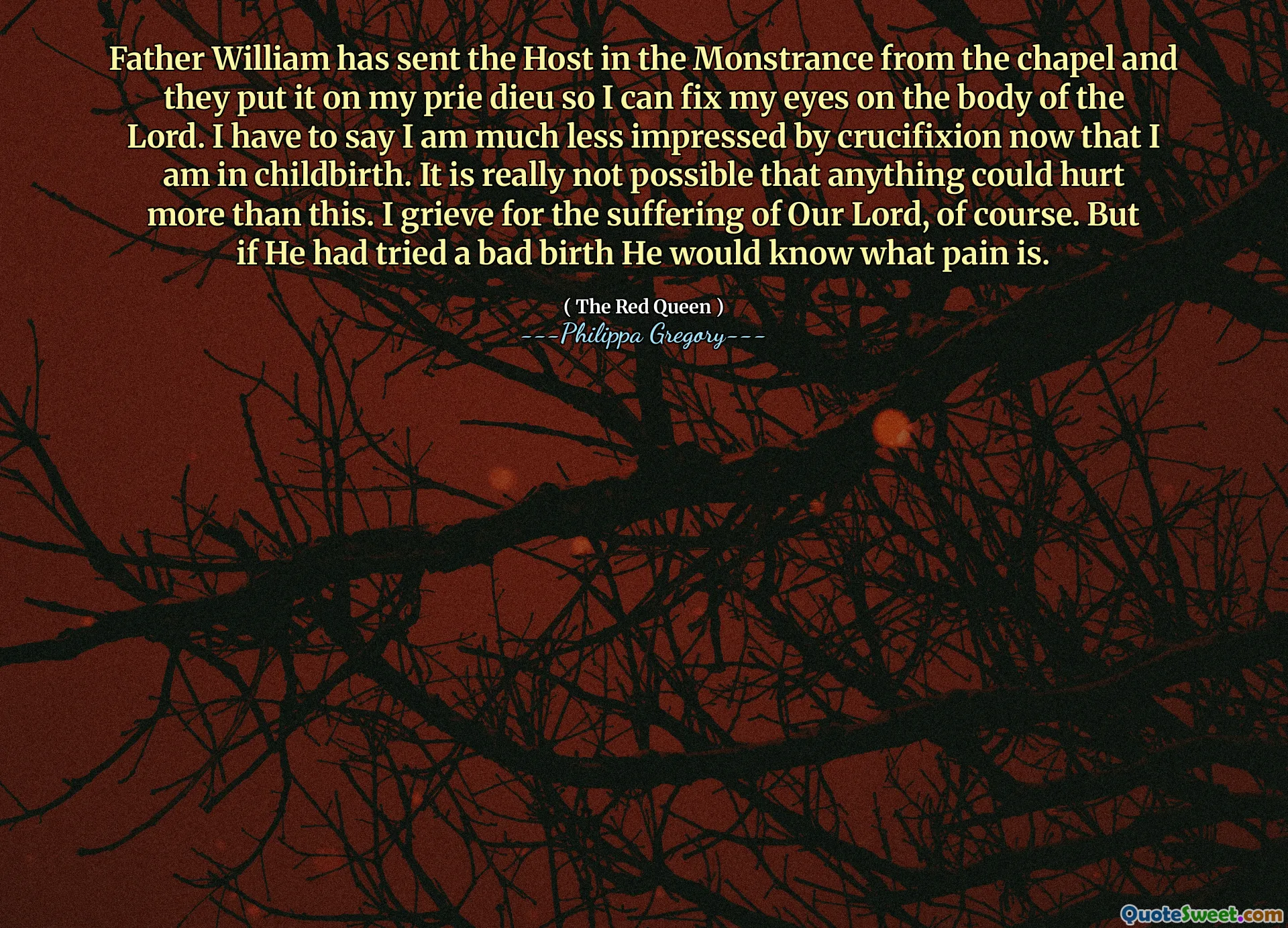
Father William has sent the Host in the Monstrance from the chapel and they put it on my prie dieu so I can fix my eyes on the body of the Lord. I have to say I am much less impressed by crucifixion now that I am in childbirth. It is really not possible that anything could hurt more than this. I grieve for the suffering of Our Lord, of course. But if He had tried a bad birth He would know what pain is.
This quote offers a profound juxtaposition of spiritual reverence and visceral physical pain. The narrator reflects on the sacred act of adoration, placing their gaze upon the body of Christ in the Monstrance, an object symbolizing His presence. This creates a sense of reverence and spiritual connection. However, this spiritual scene is abruptly contrasted with the visceral, intense suffering of childbirth. The narrator admits that their personal physical pain during childbirth has altered their perception, making the crucifixion of Christ seem almost less painful by comparison. This honesty evokes a complex emotion—both respect for the suffering of Our Lord and a raw acknowledgment of human vulnerability and pain. It brings forth the idea that physical pain, especially childbirth, can be so overwhelming that it redefines one's understanding of suffering. The statement invites reflection on how personal experiences can profoundly influence spiritual perceptions, challenging the notion that the divine's suffering is beyond human understanding. It subtly questions whether divine pain can be truly comparable to human agony, especially one as intense and primal as childbirth. The juxtaposition also perhaps honors the resilience of women, recognizing childbirth as a pain that signifies creation and life. Such a perspective deepens the narrative of suffering, emphasizing human endurance and compassion, and urging a more intimate understanding of pain, empathy, and faith. It remains a powerful reminder that suffering, in its many forms, is a deeply personal experience that can reshape perceptions of sacrifice and divine love.






